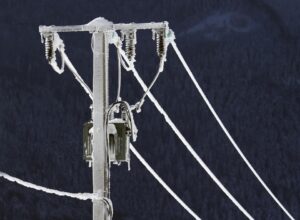 The deep freeze that afflicted the center of the US last week caused massive power outages in Texas and surrounding states. The plight of millions without power and heat captured the headlines and attracted world-wide attention.
The deep freeze that afflicted the center of the US last week caused massive power outages in Texas and surrounding states. The plight of millions without power and heat captured the headlines and attracted world-wide attention.
In the meantime, other energy-related disruptions triggered by the same weather events remained largely unnoticed, despite the fact that any of one of them would be on the list of biggest US energy disruptions ever:
- As much as 4 million barrels per day (Mb/d) of US oil production was shut-in, nearly 40% of domestic crude supply, with the Permian basin especially impacted;
- Nearly 6 Mb/d US Gulf Coast refining capacity was shut-in (roughly 30% of the national total);
- Up to 20 billion cubic feet per day of US natural gas production was shut-in (20% of total production);
Electricity truly is the lifeblood of modern civilization.
It is the largest source of energy used by American consumers and businesses—larger than oil. And it’s especially important for US families—nearly three times bigger than the next-largest (non-transport) source of energy for US households (natural gas).
Critically, our vulnerability to power outages will grow in the future because the role of electricity in our energy mix will continue to grow. Indeed, a major objective of climate policy is to displace fossil fuels with (green) electricity. So, the role of electricity in our economy will grow over time along with the number of electronic devices in our lives…as will our intolerance of outages. And we need that exposure to grow if we want to successfully address climate change. This will reduce our vulnerability to oil disruptions, but will also bring its own set of challenges. Many of these risks also apply to other energy sources, but remember: Power is the energy source that’s growing in importance!
What should we make of all this? Electricity is the new oil when it comes to security. Policymakers in Washington and other world capitals have spent 50 years worrying about how to manage oil supply disruptions. But the immediacy of power outages and the ubiquity of critical elements of modern life powered by electricity mean the impact of oil supply disruptions are a walk in the park compared with our power vulnerabilities. And our dependence on electricity and our vulnerability to disruptions are rising. It is critical that we recognize that our national security – and a successful climate policy – both depend on building a more a robust and resilient power system. (And this is from a guy who has spent 35 years working on oil & security!).
Source: “For Energy Security, Power Is The New Oil”, Forbes
